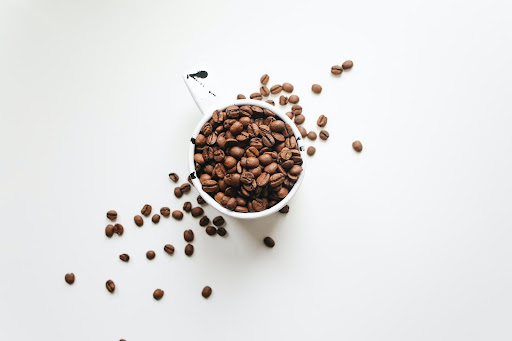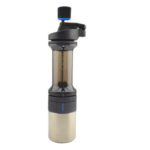How To Dry Oily Coffee Beans: Should You Do It?
There is nothing truly like opening a bag of fresh coffee beans because the aroma that comes out is like no other. It’s unique and makes you want to stand there smelling the bag for longer than necessary. Once you open the bag, though, sometimes you might notice that the java kernels are oily. Is the oil from coffee beans a good thing or a bad thing?
In this article, we’re going to dive deep and let you in on everything you need to know about this topic, common reasons it occurs, and things you can do about it! So, let’s get started.

Why Are Some Coffee Beans Oily?
If you’re a lover of java and it’s not new to you, then you’ve probably come across many bags of fresh beans. You know that they aren’t all oily. Below, we’re going to explain some of the most common reasons they may come out this way:
Roasting
When coffee beans are going through the roasting process, they physically undergo changes from color to moisture levels and volume. Due to the intense internal pressure during roasting, lipids travel from inside the kernels and penetrate the surface, and that’s the oiliness you feel upon touching them.
Stale
When coffee beans are roasted, they become unstable, and once they are exposed to oxygen, they begin to get damaged. Why? After roasting, oils come out of the beans, make the oxidation process faster, and ultimately negatively affect the java flavor. The more time they are in the air, the more oily they will be.
Are Oily Beans Good or Bad
When you have a bag of oily coffee beans, that’s not necessarily a good or bad thing. Oil naturally occurs in these kernels, and depending on how long they roast, they will have different levels of surface oil. However, you should absolutely stay away from stale beans that have been in contact with oxygen for a period of time.
Keep in Mind
When it comes to coffee beans being oily, the biggest problem is that they can easily clog automatic espresso machines and grinders. Not only might they stick to the sides of your bean hopper, but they could also blog the screen in your unit. To prolong your machines’ lives, you’ll want to avoid using oily kernels within them.
Drying Oily Coffee Beans
Like we mentioned earlier, oil naturally occurs in java beans, and once it’s penetrated their surfaces, many things about the resulting brew will change. This includes taste and smell. If you try to reverse the process and dry oily beans or wash them, you’ll simply ruin them and end up with flavorless, stale coffee.
What To Do With Your Oily Beans
If you’re looking to avoid oily java kernels completely, we have some suggestions for you below. If you happen to already have a bag of oily beans, don’t toss them just yet, we have tips for you too. So read on, friend!
Light to Medium Roast
When it comes to espresso, it’s commonly thought that dark roasts make the best ones. However, that’s not true. Instead, try using light roasts or medium-dark ones, as they are less oily but still deliver on strength and flavor.
Manual or Easy to Clean Burr Grinder
If you have some oily beans you want to use, you’ll want to grind them with a manual grinder or easy to clean burr grinder. The reason for this is because manual grinders are simple to disassemble and clean compared to the ones you find in automatic espresso machines. Since build-up of oils can cause stickiness and staining, future coffee will come out ruined.
Proper Storage
When you store your coffee in airtight containers and cool spaces, you effectively prevent oxidation and prolong its freshness. When you purchase your java, try not to buy bulk quantities, just what you need.
Final Thoughts
Although oily coffee beans are commonly thought of as a bad thing, that’s not the case. Some oil on the surface is normal. Excessive oiliness can happen when the kernels themselves are roasted improperly, stale, or flavored. And of course, they can be an issue if you have an automatic grinder, but as we mentioned, there are ways to prevent this.
We hope you’ve answered your question about how to dry oily coffee beans (short answer: don’t), and with that, we wish you happy caffeinating!





